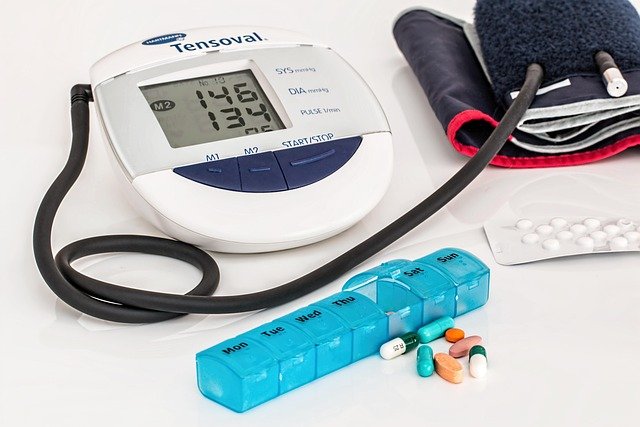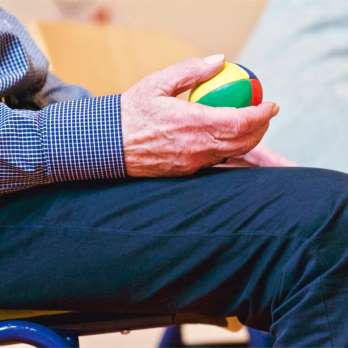Comprehensive Guide to Hypertension Treatment Options
Hypertension treatment often involves lifestyle adjustments like healthier eating, exercise, stress management, and limiting salt or alcohol. In some cases, medications may also be prescribed to help manage blood pressure levels. Early treatment helps reduce risks of heart disease and stroke.

Understanding Hypertension Treatment Guidelines
Current hypertension treatment guidelines from the American College of Cardiology and the American Heart Association define high blood pressure as readings of 130/80 mm Hg or higher. Treatment approaches vary based on severity, with stage 1 hypertension (130-139/80-89 mm Hg) often managed initially through lifestyle modifications. For stage 2 hypertension (140/90 mm Hg or higher), a combination of lifestyle changes and medication is typically recommended. Guidelines emphasize personalized treatment plans based on individual cardiovascular risk factors, comorbidities, and patient preferences. Regular monitoring and follow-up appointments are essential components of these guidelines to ensure treatment effectiveness and make necessary adjustments.
Lifestyle Modifications for Blood Pressure Management
Lifestyle changes form the foundation of hypertension treatment and may be sufficient for those with borderline or mild hypertension. The DASH (Dietary Approaches to Stop Hypertension) diet has strong evidence supporting its effectiveness, emphasizing fruits, vegetables, whole grains, and low-fat dairy while limiting sodium, saturated fat, and added sugars. Regular physical activity—aiming for at least 150 minutes of moderate-intensity exercise weekly—can lower systolic blood pressure by 5-8 mm Hg. Weight management is equally important; losing just 5-10 pounds can significantly improve blood pressure readings. Other beneficial lifestyle modifications include limiting alcohol consumption, quitting smoking, reducing caffeine intake, and implementing stress management techniques such as meditation, deep breathing, or yoga.
Medication Options for Hypertension Treatment
When lifestyle changes aren’t enough to control blood pressure, medications become necessary. Several classes of antihypertensive drugs are available, each working through different mechanisms. Thiazide diuretics reduce blood volume by increasing urination and are often prescribed as first-line treatment. ACE inhibitors and angiotensin II receptor blockers (ARBs) relax blood vessels by blocking the effects of angiotensin, a hormone that narrows arteries. Calcium channel blockers prevent calcium from entering heart and blood vessel cells, reducing vessel constriction. Beta-blockers lower heart rate and cardiac output, while others like alpha-blockers and central-acting agents target specific aspects of blood pressure regulation. Many patients require combination therapy, using multiple medications at lower doses to achieve better control with fewer side effects.
Advanced and Emerging Hypertension Treatments
For patients with resistant hypertension—high blood pressure that remains uncontrolled despite taking three or more medications—advanced treatment options may be necessary. Spironolactone, a potassium-sparing diuretic, has shown effectiveness as a fourth medication for resistant cases. Newer interventional procedures are being developed for these challenging situations. Renal denervation uses radiofrequency ablation to reduce nerve activity in kidney arteries that contribute to hypertension. Baroreceptor activation therapy involves implanting a device that stimulates baroreceptors in the carotid artery to reduce sympathetic nervous system activity. Clinical trials continue to evaluate these approaches, and while promising, they’re typically reserved for cases where conventional treatments have failed.
How to Manage High Blood Pressure Daily
Successful daily management of hypertension requires consistent habits and careful monitoring. Home blood pressure monitoring is essential—measuring at the same times each day provides valuable data for healthcare providers to adjust treatment plans. Medication adherence remains one of the biggest challenges; using pill organizers, setting alarms, or mobile apps can help establish a routine. Tracking blood pressure readings in a journal or app helps identify patterns and triggers. Managing stress through mindfulness practices, adequate sleep (7-8 hours nightly), and moderate sodium intake (less than 2,300 mg daily) all contribute to better control. For those with comorbidities like diabetes or kidney disease, coordinated care with specialists ensures comprehensive management of all conditions affecting blood pressure.
Comparing Hypertension Medications: Effectiveness and Considerations
Different classes of antihypertensive medications offer varying benefits depending on patient characteristics and medical history. Understanding these differences can help guide treatment decisions with your healthcare provider.
| Medication Class | Common Examples | Best For | Considerations |
|---|---|---|---|
| Thiazide Diuretics | Chlorthalidone, Hydrochlorothiazide | First-line treatment, African American patients | May affect potassium, glucose levels |
| ACE Inhibitors | Lisinopril, Enalapril | Diabetes, kidney disease, heart failure | Not recommended in pregnancy, may cause cough |
| ARBs | Losartan, Valsartan | Similar to ACE inhibitors without cough side effect | Generally well-tolerated but more expensive |
| Calcium Channel Blockers | Amlodipine, Diltiazem | Older adults, African American patients | May cause ankle swelling, constipation |
| Beta-Blockers | Metoprolol, Carvedilol | History of heart attack, heart failure | May worsen asthma, mask hypoglycemia symptoms |
Prices, rates, or cost estimates mentioned in this article are based on the latest available information but may change over time. Independent research is advised before making financial decisions.
Conclusion
Hypertension treatment requires a comprehensive approach that combines appropriate lifestyle modifications with medication therapy when needed. Current guidelines emphasize personalized treatment strategies based on individual risk factors and comorbidities. Regular monitoring, strong provider-patient communication, and consistent adherence to treatment plans are essential for successful blood pressure management. With proper treatment and lifestyle changes, most people with hypertension can achieve good control and reduce their risk of serious cardiovascular complications.
This article is for informational purposes only and should not be considered medical advice. Please consult a qualified healthcare professional for personalized guidance and treatment.




